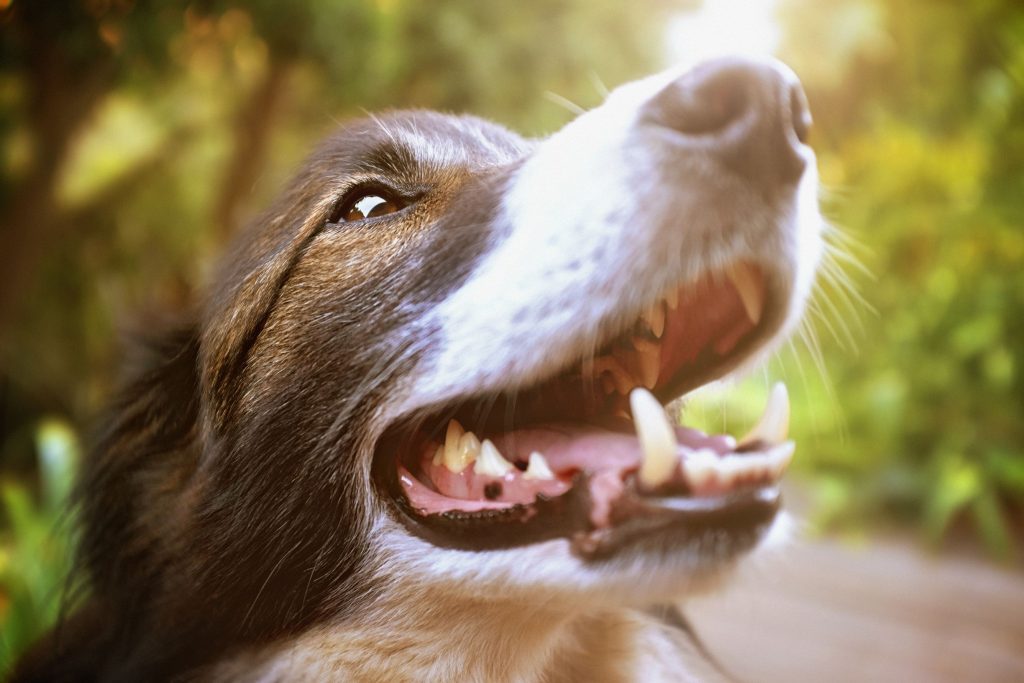Got Long-Term Goals? Don’t Forget Pet Dental Care!

Most pet owners are familiar enough with doggy or kitty breath that they start to inch toward acceptance. But what if we told you that the first sign of periodontal (gum) disease was stinky breath? Aside from simple aging and normal wear and tear, the majority of pets over age three show many signs of dental disease. The good news is that with regular pet dental care, your best friend can enjoy a longer, healthier life (and better smelling breath!).
The Big Picture
Pet dental care is just as important as human dental care. Sure, your cat or dog might not develop sugar-related cavities the way people do. But they can still suffer from poor hygiene.
Periodontal disease begins when naturally-occurring oral bacteria mixes with food to form dental plaque. When combined with certain minerals in saliva, plaque hardens into tartar. This is typically noticeable right along the gumline, where the tartar appears yellow-brown. Accumulation grows and covers more tooth area over time, but what happens beneath the gum line is usually more problematic. Serious damage to bone and gum tissue precedes tooth loss.
Without attention to pet dental care, periodontal disease can eventually cause damage to the vital organs.
See the Signs
Bad breath is usually the first sign that a pet has something going inside the mouth. As a symptom that disease is already progressing, bad breath should be dealt with promptly.
Other symptoms of periodontal disease include:
- Bleeding or red, swollen gums
- Reduced appetite or dropping food while eating
- Excessive or uncharacteristic drooling
- Missing or cracked teeth
- Pawing at the mouth
- Favoring one side of the mouth
- Pain or sensitivity at being touched around the jaw or mouth
- Behavior changes
There are four categories of periodontal disease, and only the first stage is reversible. By the time disease progresses beyond the second stage, antibiotics, pain medications, and extractions are important steps to thwart advancing disease and keep a pet comfortable.
Stop That Train
Routine pet dental care is the only way to prevent periodontal disease. At your pet’s routine wellness exam, we take extra time to assess the state of their teeth and gums. We may make several recommendations for caring for your pet’s teeth at home, which includes brushing their teeth/gums several times a week, providing dental chews, proper toys, and even certain treats or prescription diets to mitigate plaque and tartar.
Some breeds may be more susceptible to dental disease. As such, it remains a high priority for owners of small dogs or brachycephalic breeds,
Professional Pet Dental Care
Additionally, pets benefit from professional cleanings, scalings, polishing and digital x-rays. When we have a picture of what’s happening under the gum line and inside the teeth we can develop a more effective treatment plan. It is important to note that professional pet dental care is safely conducted under general anesthesia. The long-term effects of proper dental care outweigh the slight risks associated with anesthesia. Most pets, even those that undergo extractions, usually bounce back within a day or two.
Our staff at All Creatures Veterinary Hospital of Brooklyn is always happy to address your pet’s health. Please give us a call at (347) 915-1420 with any questions or concerns.

